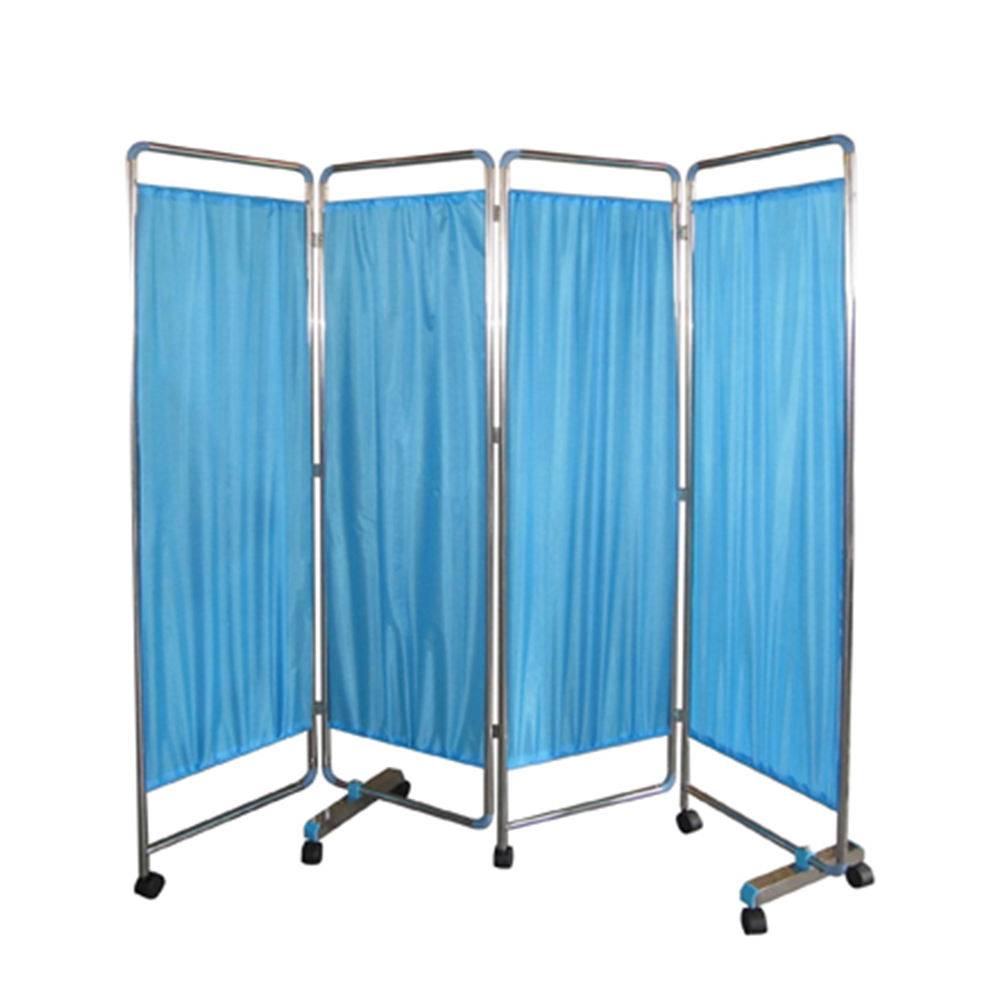Address
304 North Cardinal St.
Dorchester Center, MA 02124
Work Hours
Monday to Friday: 7AM - 7PM
Weekend: 10AM - 5PM
Address
304 North Cardinal St.
Dorchester Center, MA 02124
Work Hours
Monday to Friday: 7AM - 7PM
Weekend: 10AM - 5PM

A privacy screen medical is a portable or fixed barrier used in healthcare settings to create a private space for patients during examinations, treatments, or consultations.
In healthcare settings, patient privacy is paramount. Ensuring that patients feel secure and respected during medical examinations, treatments, or hospital stays is a critical aspect of quality care. One of the most effective tools for maintaining patient privacy medical is the use of privacy screens in medical facilities. These screens provide a physical barrier that helps to protect patient confidentiality while also contributing to a more comfortable and dignified environment. In this blog, we will explore the importance of privacy screens in medical settings, their benefits, and how to choose the right privacy screen for your healthcare facility.
This is our Facebook account and TikTok account. You are welcome to learn more about our company’s products and stories.

A privacy screen medical is a portable or fixed barrier used in healthcare settings to create a private space for patients during examinations, treatments, or consultations. These screens can be made from various materials, including fabric, plastic, or metal, and are often mounted on wheels for easy mobility. Privacy screens are commonly used in hospitals, clinics, doctor’s offices, and other medical environments where maintaining patient confidentiality and comfort is essential.
Patient privacy is a fundamental aspect of healthcare that directly impacts patient trust, comfort, and overall satisfaction with their care. When patients feel that their privacy is respected, they are more likely to be open and honest with healthcare providers, which can lead to better diagnoses and treatment outcomes. In addition, maintaining privacy helps to protect patients’ personal and medical information, which is a legal and ethical obligation for healthcare providers.
Privacy screens used in medical settings come with several key features designed to enhance patient privacy and ease of use:
One of the most significant benefits of using privacy screens in medical settings is the enhancement of patient comfort and dignity. Privacy screens provide a visual and physical barrier between the patient and the surrounding environment, allowing patients to feel more at ease during examinations or treatments. This is especially important in shared spaces, such as emergency rooms or multi-patient wards, where maintaining privacy can be challenging.
Privacy screens are a crucial tool in protecting patient confidentiality. By creating a private space around the patient, these screens help to prevent unauthorized individuals from viewing or overhearing sensitive medical information. This is particularly important in settings where multiple patients are being treated in close proximity, such as in outpatient clinics or emergency departments.
Privacy screens are highly versatile and can be used in a variety of healthcare settings. Whether in a hospital, clinic, or private practice, these screens can be easily adapted to fit different spaces and privacy requirements. They can be used to create temporary examination rooms, divide larger rooms into smaller, more private areas, or provide a quick solution for unexpected privacy needs.
In addition to providing privacy, some privacy screens also contribute to infection control. Screens made from antimicrobial materials or those designed for easy cleaning help to reduce the spread of infections in medical environments. This is especially important in hospitals and clinics where patients with contagious illnesses are treated.
Privacy screens offer a cost-effective solution for healthcare facilities looking to improve patient privacy without significant investment in structural changes. They are generally affordable, easy to install, and can be moved or reconfigured as needed, making them a flexible and economical choice for enhancing patient privacy.
| Feature | Fabric Privacy Screens | Plastic Privacy Screens | Metal Privacy Screens |
|---|---|---|---|
| Portability | High | Moderate | High |
| Durability | Moderate | High | Very High |
| Ease of Cleaning | Moderate | High | High |
| Infection Control | Moderate | High | High |
| Customizability | High | Moderate | Low |
| Cost | Low to Moderate | Moderate | High |
| Best Use | Clinics, private practices | Hospitals, ERs | High-traffic areas |

Before purchasing privacy screens for your healthcare facility, it’s essential to assess your specific needs. Consider the types of procedures or treatments you perform, the layout of your space, and the level of privacy required. For example, a busy emergency department may need durable, easy-to-clean screens that can be quickly repositioned, while a private practice may prioritize aesthetics and customizability.
The material of the privacy screen is a crucial factor in its durability and ease of maintenance. Fabric screens are often lightweight and customizable but may require more frequent cleaning. Plastic screens offer a good balance of durability and ease of cleaning, making them suitable for high-traffic areas. Metal screens are the most durable and are ideal for facilities that require long-lasting, robust privacy solutions.
Portability is an important consideration, especially in dynamic environments where patient needs and room configurations can change rapidly. Screens with wheels are highly portable and can be moved easily from one area to another. Flexibility in terms of size and configuration is also important, as it allows you to create the desired level of privacy in various spaces.
While privacy screens are generally a cost-effective solution, it’s important to consider your budget when making a purchase. More durable materials like metal may come with a higher upfront cost, but they also offer greater longevity. Conversely, fabric screens may be more affordable initially but could require more frequent replacement. Balancing cost with quality and durability will help you make the best investment for your facility.
The appearance of privacy screens can also play a role in your decision. Some facilities may prefer screens that match the overall décor or brand colors. Customizable options are available, allowing you to choose from a range of colors, patterns, and even logos. This can enhance the overall ambiance of your facility, making it more welcoming and comfortable for patients.
Privacy screens are an essential component of patient care in medical settings, providing both privacy and comfort. By choosing the right privacy screen for your facility, you can enhance patient satisfaction, protect confidentiality, and contribute to a more efficient and professional environment. Whether you’re outfitting a large hospital or a small clinic, the right privacy screen medical solution can make a significant difference in the quality of care you provide.
Privacy screens can be made from a variety of materials, including fabric, plastic, and metal. Each material offers different benefits in terms of durability, ease of cleaning, and suitability for different healthcare environments.
Privacy screens that are made from antimicrobial materials or are designed for easy cleaning can help reduce the spread of infections. Regular cleaning and disinfection of these screens are essential in maintaining a sterile environment.
Yes, many privacy screens can be customized to match the décor of your facility. Options may include different colors, patterns, and even the addition of logos or branding elements.
Many privacy screens are designed with portability in mind. Screens mounted on wheels can be easily moved and repositioned as needed, making them ideal for dynamic healthcare environments.
When choosing a privacy screen, consider factors such as the material, durability, ease of cleaning, portability, and budget. Assess your facility’s specific needs and choose a screen that best meets those requirements while also fitting within your budget.
Privacy screens create a private and secure environment for patients during examinations, treatments, or consultations. By providing a physical barrier, they help patients feel more comfortable and respected, reducing anxiety and stress during medical procedures.
Yes, there are privacy screens designed specifically for outdoor use. These screens are typically made from weather-resistant materials that can withstand various environmental conditions while still providing the necessary privacy for medical procedures conducted outdoors, such as in mobile clinics or emergency response units.
The frequency of cleaning for privacy screens depends on the material and the environment in which they are used. In high-traffic areas like hospitals, privacy screens should be cleaned and disinfected regularly, ideally after each patient use, to prevent the spread of infections.
Absolutely. While privacy screens are commonly used in medical settings, they can also be employed in various non-medical environments where privacy is needed, such as in offices, salons, and educational institutions. Their versatility makes them a useful tool in any setting that requires temporary or flexible partitions.
Privacy screens come in a range of sizes to accommodate different needs and spaces. From smaller, single-panel screens to larger, multi-panel setups, you can find privacy screens that suit both compact areas and more extensive open-plan spaces, providing the level of privacy required for various medical and non-medical applications.